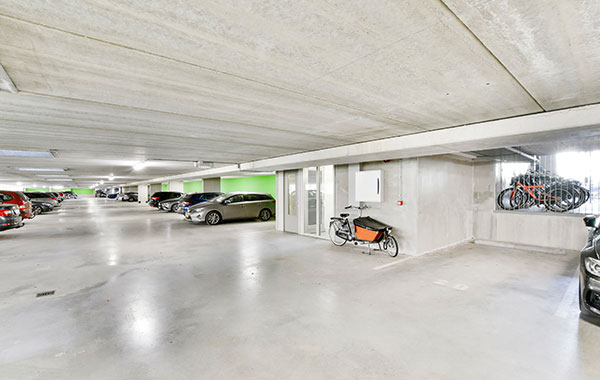By Rachel Puma
Robins Appleby
Throughout 2021, the City of Toronto has been considering amendments to the current Toronto-wide zoning bylaw in relation to parking requirements for new developments. Historically and to-date, the City has required a minimum amount of parking spaces based on number and size of units and location of the development.
The more parking spots required for a particular development (and particularly for new condominiums), the more costly the project becomes. Each additional underground parking level a developer builds increases the construction costs exponentially – a cost that is ultimately passed on to consumers in housing prices. In fact, a November 2021 Report for Action from the City Planning Division cites that the average cost of constructing a new parking space as part of a development is $48,000 to $160,000.
Increasing costs and timelines
Not only are the costs increased, but construction timelines increase dramatically, as well. Given the increased cost and lengthier construction timelines, it is no surprise that most developers attempt to negotiate a decreased number of required parking spaces with the support of a parking study – an attempt that is not always successful.
Now, in the wake of the shift to a greener lifestyle, where sustainable transportation (cycling, carpooling and transit) is considered an integral part of future communities, the City has made a U-turn in regards to its views on parking requirements for new developments. Under the proposed amended bylaws, for the most part, developers would be permitted to only construct a maximum amount of parking spaces for new developments (as opposed to being required to construct a minimum amount of parking spaces). The rationale for this proposal is that a lower number of parking spaces will decrease construction costs (and accordingly, decrease housing costs for purchasers), reduce construction timelines, and manage auto-dependency by promoting sustainable transportation and discouraging single-occupancy vehicle use.
Outdated requirements
In my view, the proposed City of Toronto changes will allow the market to govern the amount of parking units desired in a development, as opposed to rigid compliance by the City with a potentially outdated minimum requirement. Developed communities, particularly those which attract a younger generation of homebuyers such as downtown Toronto, have a greater need for affordable housing than they do for increased parking spaces, particularly if those communities intend to discourage single-occupancy vehicle use and encourage sustainable transportation. In communities where homebuyers will be concerned by a lower number of parking spaces, such as those without reliable sustainable methods of transportation, developers will still be able to construct up to the maximum amount of spaces per the bylaw, and will have the ability to negotiate for an increased number of parking spaces, provided they have a parking study to support the greater number. This is similar to the current process, except that now developers will not be prevented from developing new homes where minimum parking requirements cause the project to become too costly to develop.
Rachel Puma is an Associate at Robins Appleby. robinsappleby.com










